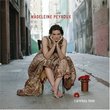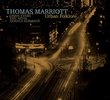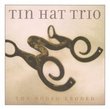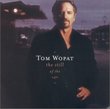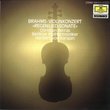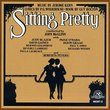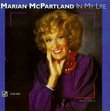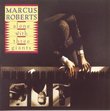| All Artists: John Carol Case, Ralph Vaughan Williams, Adrian Boult, London Philharmonic Chorus, London Philharmonic Orchestra, Sheila Armstrong Title: Vaughan Williams: A Sea Symphony Members Wishing: 0 Total Copies: 0 Label: EMI Classics Release Date: 9/12/1991 Genre: Classical Styles: Historical Periods, Modern, 20th, & 21st Century, Symphonies Number of Discs: 1 SwapaCD Credits: 1 UPCs: 077776401621, 077776401652 |
Search - John Carol Case, Ralph Vaughan Williams, Adrian Boult :: Vaughan Williams: A Sea Symphony
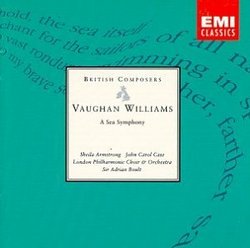 | John Carol Case, Ralph Vaughan Williams, Adrian Boult Vaughan Williams: A Sea Symphony Genre: Classical
|
Larger Image |
CD DetailsSimilarly Requested CDs
|
CD ReviewsMusic of Power, Majesty, and Melodic Beauty Raphael Collin | Jersey City | 09/01/2002 (5 out of 5 stars) "I fell asleep at a performance of Vaughan Williams' "A Sea Symphony" some years ago. It is a LONG piece. I would not recommend it as a first Vaughan Williams purchase, unless you are a particular fan of choral music. On the other hand, I couldn't ignore it. Robert Shaw (America's "Mr. Choral Music") described this symphony on the radio as "the most beautiful piece of choral music written in the 20th century". Wow! That covers 100 years, you know. And I deeply enjoy other pieces by RVW, including his Four Hymns and Five Mystical Songs. So I bought this CD and now, instead of listening to this 70-minute symphony in one very long sweep, I listen to songs and sections. The symphony is a setting of poems by Walt Whitman that celebrate human daring, and RVW matched that by writing an immense symphony. If you have not heard this symphony before, you could not imagine the sonic images Vaughan Williams creates for ships, sailors, and the sea. The first notes at the music's very beginning have the full chorus and orchestra at top voice singing "Behold, the Sea itself!" It is startlingly majestic, and yet it is followed by an almost vulgarly pop and spiky little tune for male voice (baritone) and bassoon that I now sing everyday while shaving "today, a rude brief recitative about ships sailing the sea ..." The diversity is wonderful - Vaughan Williams must have oozed all kinds of music, since he composed the hushed hymn-like Tallis Fantasia at about the same time. If you are new to Vaughan Williams, I would suggest you purchase Boult's wonderful collection of short RVW compositions first. It is also in EMI's British Composers series. It has the lovely and songful "Serenade to Music", the tune-filled and simple "English Folk Song Suite", and the lovely beyond words and soul-filled "The Lark Ascending." As a first symphonic purchase, the "London Symphony" (#2) is wonderful. But if you know Vaughan Williams already and just don't know "the Sea Symphony", fear not: It is a great score. The quality and variety of the melodies is deeply satisfying; the rhythms swing and stride at one moment and are raptly processional at another; the harmonies are rich and can be colorful or strange and foreboding; the orchestra is used idiosyncratically. The sonic range is enormous: the baritone sings quietly in meditation of the sea at night at one point, and at another the entire chorus calls out in joy, "Sail forth!" There are several recordings of this symphony. Which to choose? You cannot go wrong with this CD. This performance has been admired for a generation. I might prefer Thomas Allen's "rude brief recitative" for Leonard Slatkin, but the composer himself admired John Carol Case's singing (in "The Pilgrim's Progress") and Adrian Boult had been performing Vaughan Williams' music for 40 years when this recording was made. He premiered major pieces. He knew Vaughan Williams' music as few others and he captures every mood. He sings and dances, meditates and exults." Vast, Fresh and Wild as the Sea Itself Karl Henning | Boston, MA | 07/11/2002 (5 out of 5 stars) "The combination of Whitman's wonderful poetry with Vaughan Williams' music is one of the happiest of artistic events; they each own the freshness of the outdoors, and a voice as strong as sunshine, and an effortless candor which must speak to any soul on the planet. Whitman's poetry WORKS in a way that all too little free verse works; think of it not as poetry, but as a poet singing his soul to you, and hear the music in the ideas and in the words, a music that runs deeper than simple meter and rhyme.It were hard to imagine a performance which could do Vaughan Williams' Sea Symphony better justice than this one under Sir Adrian Boult (hard to imagine, but if it's out there, reserve me a seat). The immensity of the opening chorus, the plain honest sea-shanty which John Carol Case makes look easy, the purity of Sheila Armstrong's voice - a choir and orchestra whose love for the music shines through every bar ... "All lives and all deaths, all of the past, present, future, / This vast similitude spans them, and always has spanned, / And shall forever span them and shall compactly hold and enclose them."" Behold ! The Symphony itself ... jean couture | Quebec city - Canada | 03/26/2002 (5 out of 5 stars) "THE FIRST SYMPHONY, created by the great British musician, arranger, conductor and composer, is a complete choral symphony. Perhaps it was the first of it's kind since Jean Sibelius's earlier `Kullervo', a choral symphony of 1892 (often referred to as a "symphonic poem"), and Beethoven's Ninth---taking into account that the latter is a "choral" work in part, not entirely. The first performance of A Sea Symphony took place in 1910 at the Leeds Festival. Prior to its first appearance the work began as sketches in the form of songs for choir and orchestra, but with time it eventually transformed into a much larger work which was initially titled `The Ocean'. The English composer Granville Bantock conceived the bold idea of symphonies "for voices only" ; he wrote his unusual "choral symphonies" in 1911 and 1913. Gustav Holst's first Choral Symphony (with words by Keats) was given its premiere at Leeds Town Hall on October 7, 1925. It's been created for soprano solo, chorus and orchestra, but was admittedly of lesser scope than that of his counterpart. In fact, Vaughan Williams---like Holst---was an innovator in his use of the materiau on the symphonic terrain, fusing large choral parts with the prevalent forms of orchestral music : In any case, it could serve also to reveal how both were partially indebted to Parry and Elgar. Also of interest is the fact that an American composer, Howard Hanson, created his own Sea Symphony---No.7---in the mid-1970's. Was it indirectly a sort of homage to both Vaughan Williams and Whitman? Like his British predecessor Hanson utilized texts by Walt Whitman and a structure strangely reminiscent to that of Vaughan Williams, although reduced---involving fairly large choral and orchestral forces (the duration is barely half that of the 1910 Sea Symphony, though).
In an immensely interesting article, Dr. Jack Sullivan (musicologist) wrote of A Sea Symphony : "Like the poetry, the music has a little of everything. It is part symphony, part oratorio, part opera, and part `fantasia' (a favorite Vaughan Williams' form). The slow movement and Scherzo have traditional ABA formats, but the huge outer movements (even with the hidden sonata form in the first) seem to invent their forms as they proceed, echoing the `organic' principle of Whitman's free verse. The hymn-like finale, aptly subtitled `The Explorers', is almost a symphony in itself, one without closure. Refusing to end, it fades `farther' and yet `farther' out to a sea whose depths are subliminally suggested by whispers in the lower strings". (Please note that ABA is symbolizing ternary form in which the first section A precedes and follows a second section B, a form so common in classical song that it is also called 'song form' - or sonata form, while AB is a musical form that has two sections, A followed by B, and is known as 'binary form'.) For a very first attempt at writing a symphony, on top of that - in such a huge scale, the result was far from a failure. Quite to the opposite, the fascinating verses of Whitman are skillfully integrated into the orchestral element. In all, i think it is an extraordinary symphony ; by means of almost seamless musical procedures, what i am tempted to term "the sailcloth of the symphony," VW developed singular means in constructing an orchestral edifice. Thanks to the lyrics the work has a mystical feel to it---since Whitman's poems are like the footpath to a sort of initiation, much like a ritual, a "rite of passage" for the soul pointing perhaps `toward the unknown region' of immortality : Darest thou now O soul, Walk out with me toward the unknown region, Where neither ground is for the feet nor any path to follow. - Toward the Unknown Region, excerpts from `Leaves of Grass' (1900). I think it is quite significant that VW took inspiration from the great American writer, for not only did he used texts for A Sea Symphony and Toward the Unknown Region but also for Dona nobis pacem and some picturesque songs such as `Nocturne', `A Clear Midnight' and `Joy, shipmate, joy'. Perhaps i should quote a reviewer for classical.net : "Here is a composer who apparently loved Whitman. He used Whitman's works as a basis for his First Symphony - `The Sea' and `Toward the Unknown Region'. It is interesting that this English composer seems to so deeply understand the poetry of Walt Whitman. [...] The music flows from the rhythm inherent in the language." After all, we're talking about a poetry which is universal in character yet not quite easily grasped. At any rate, there were many composers or contemporary writers who were attracted by Whitman's visionary genius. I will cite excerpts from another study (Jack Sullivan, 1999) titled `Whitman's Musical Legacy' : "Why Whitman is so attractive to composers is one of the most tantalizing mysteries of American culture... Is it because of the flexibility of Whitman's free verse, the intimate first-person voice, the universality of Whitman's content? Composers most profoundly shaped by Whitman speak of his connection to music as if it were self-evident, dwelling on spiritual issues rather than purely musical ones. Clearly, the resonance is fundamental, direct, and deeply personal, going beyond technical considerations - an electric current flowing from one art to another. [...] Two Whitman attributes frequently cited by musicians are variety and timelessness. It's hard to think of another poet who is able to combine universality and intimacy in such an array of scenarios." Incidentally, in the same peculiar---whitmanian---mood is the poem `A Clear Midnight' : This is thy hour, O soul, thy free flight into the wordless . . . - excerpts from `Leaves of Grass' (1900). Attempts at describing the composer as either a "visionary" or a sort of "seer", not quite in conformity with his humble and candid personality, fits a lot more with the mystic literary works of Whitman. Therefore, we can assume a kind of complementary connection took place between Whitman and VW, binding together unrelated (though neighbored) art forms in the best interest of both---such was the case, to great effect, with A Sea Symphony. The symphony is, thanks to the pondering words of a singular poet and to the imagination of a daring composer, the vehicle of much more mysteries than what emerges merely on the surface. It seems to reecho a yearning past over present and future. Perhaps A Sea Symphony should be acknowledged as the single greatest realization from the first few decades of the 20th century, by any composer from any country! If i'd have to point toward the unknown regions of favorite traversals of this symphony, i'd go for Boult, Haitink, Handley, Hickox, Previn, Slatkin and Thomson (personally, i like all of those...). Bryden Thomson (with the eminent London Symphony Orchestra) brought together a tightly refined, let's say "well-balanced," reading. His opening, 'A Song for all Seas, all Ships', is resolute and does really provide a subjective impression of huge waves and sail-ships. The Chandos sound is fine. Other than Thomson's brilliant rendering, sir Adrian Boult's glorious account with LPO (the EMI album under review) remains a grand interpretation. The very opening reveals poignant, mellifluous sounds proclaiming the greatness of seas through a sort of hymnic fanfare. It boasts the luminous colors and traits of the typically more "lyrical" Boult of the late 1960's. That's a strong introduction, even if the 1950's mono Decca is interpretively better if quite a bit duskier. Vernon Handley with RLPO (EMI) offers an enticing version, still perhaps just a shade on the lower side of the chorus performance in the softer passages but otherwise excellent. The soloists are very good, in particular Joan Rodgers who, undoubtedly, gives one of the most worthiest utterances to that work. And though Heather Harper, Yvonne Kenny and Benita Valente give exquisite results on their own, they cannot match Rodgers' distinctive presence on that piece. The conductor equally seems to proceed in a familiar environment. John Quinn of MusicWeb remarked that "Handley is entirely at home in this music and his persuasive, natural authority is one of the principal reasons why this recording is so successful. [...] He is ably supported by the RLPO and by its chorus, who quite evidently were very well prepared for this assignment." Robert Spano's direction in Atlanta (Telarc) is among the finest, and sound quality excels : Clearly a serious challenge for Boult's EMI version. Spano's main strength resides especially in his high-magnitude finale, probably unmatched on record. I agree with The Absolute Sound that "the soloists are excellent, but the greatest strengths of this performance are the chorus' precision and tonal beauty. Their precision makes the best possible case for Spano's sinewy interpretation, and their tonal beauty brings us closer to the heart and soul of Vaughan Williams." We could go on and on in attempting to describe that wonderful interpretation. Paul Daniel (Naxos) offers a very good account on its own but, still, without quite the sharpest sonics---at least when put side-by-side with the records i've mentioned earlier. Here the Bournemouth Symphony and their devoted conductor have taken a "safe" approach, adequately managing the orchestral balance throughout and handling with care the numerous climaxes and contrasts of the score. Notwithstanding there are quite a few inspired moments, performance and sound aren't exactly on par with their gorgeous reading of the Fourth Symphony (also on Naxos). Soloists Joan Rodgers and Christopher Maltman are in very good form though i've heard better from Rodgers in Vernon Handley's superlative account of the same work. The EMI recording under Bernard Haitink offers another excellent alternative. With majestic power and some gorgeous sound from the LPO, this is unequivocally great listening. Even if i found Haitink's cycle of the VW symphonies irritatingly variable, in most areas this reading of the First Symphony is outstanding. And, at least from the MHS reissue i have on hand, the overall sound is splendid. The same goes for the RCA recording from Leonard Slatkin, which is equally very fine. His is a compelling reading ; to quote music critic William S. Goodfellow, "there is a robust vitality about this performance that communicates both its songful vigor and its youthful spirit". I am fond of that version very much, not only because it seems to capture some bits of inner detail that others don't but also because it simply is a handsomely dynamic account---just as it should be. And there's a kind of "raw feeling" to its grandeur which i find particularly moving. For its vibrant qualities, and in view of its infinitesimal faults, it definitely ranks among the best. Andre Previn, on RCA, is yet another great rendering. Blair Sanderson of All Music Guide says of Previn's that it is "comparable to Boult's in atmosphere, power, and glorious orchestral color; it may even have an edge for its clearer details. With the London Philharmonic Orchestra & Chorus and vocal soloists Heather Harper and John Shirley-Quirk at his command, Previn's resources are quite as rich as Boult's, and he elicits a performance every bit as magnificent and mystical ; both conductors achieve awe-inspiring results with this symphony, which ranks as one of the most profound choral works of the twentieth century". There's a great deal of value in the present reading from Boult, not to mention the almost unparalleled singing of Sheila Armstrong and John Carol Case. The London Philharmonic chorus is effective, and it is audibly more immersing than most other choruses (i've been a little bit deceived by Andrew Davis' rendering of this symphony, mainly because of that). Needless to say, A Sea Symphony is very demanding on both singers and musicians. Its colossal conception taxes the orchestra's sense for harmony and control whilst not losing track of the occasional softest passages. This is a case where it does really "make or break." The work requires a conductor capable of discernment, a chef who is able to obtain what the score calls for with knowledge and intuitive perception. In some way the work shares many common features with the `Sinfonia antartica', even though there's no profound similitude pertaining to the "cinematic quality" of the latter. Instead, it is in terms of a bold imaginary seascape and at times grandiose-sounding music where a connection exists. Boult's interpretation portrays vividly those facets of the symphony. Considering that there's a variety of very good recordings on cd's, i think you cannot go wrong with any of them. Andrew Davis (with the BBC S.O., Teldec) has done a very good job ; his orchestration is refined (i like especially the way he dealt with the vocal quality of the music in 'On The Beach At Night Alone'). Their sound has a wealth of detail and the Blackheath Concert Hall is exempt of artificial gimmicks : Teldec's engineer Tony Faulkner and producer Andrew Keener must earn credit for that. Reviewer Christopher Thomas of MusicWeb wrote that "in his conception of the Sea Symphony Davis does demonstrate a sense of command. Getting to grips with this most sprawling of Vaughan Williams symphonies is no mean feat although in recent times Paul Daniel achieved it admirably on Naxos with the Bournemouth Symphony Orchestra. Davis grasps the architecture of the work as surely as he does with Elgar." Personally, i wouldn't include it in my top list mostly because of the fact that the finest versions simply leave no room for competition---even as good as Teldec's Davis gets. And, perhaps, you shouldn't overlook Previn either (RCA), as it is a very good, very solid account overall. I quote Blair Sanderson of AMG, who mentioned in his review that "the authoritative recording of Ralph Vaughan Williams' Sea Symphony is generally conceded to be the stirring rendition by Sir Adrian Boult and the London Philharmonic released in 1968 on EMI. But the 1970 RCA recording by Andre Previn should be considered a worthy competitor. [...] With the London Symphony Orchestra & Chorus and soloists Heather Harper and John Shirley-Quirk at his command, Previn's resources are quite as rich as Boult's, and he elicits a performance every bit as magnificent and mystical; both conductors achieve awe-inspiring results with this symphony, which ranks as one of the most profound choral works of the twentieth century and transcends most English symphonies in its grand scope and cosmic import. [...] This is a splendid reading, and while some may want to test it in a side-by-side comparison with Boult's or later recordings by Robert Spano or Leonard Slatkin, it stands up perfectly well on its own as a masterful interpretation." The great conductor Richard Hickox (1948-2008) led two excellent versions that should warrant further discussion. His latest, a hybrid SACD with the LSO for Chandos, is probably the most satisfying. His first recording of that work was made in 1989 for Virgin Classics and features the Philharmonia Orchestra, the London Symphony Chorus and fine soloists---alongside renown producer Andrew Keener. It is a very good account, full of tidal energy with spots of slightly somber wistfulness. There's a sense of swelling waves almost crashing "in your face," the temper of the big ocean deftly depicted on disc. And, even if the 1989 sound is "a little mushy" and a bit lacking in detail, i like it sufficiently to say it belongs to the finest---just as the more recent one, arguably superior, for Chandos. "The (1989) performance", to quote Michael Greenhalgh of MusicWeb, "is just as fresh as 2006's and rather more fiery and, in this respect, exciting. [...] Baritone Stephen Roberts approaches the heroic quality of Gerald Finley but his tone is too light to have sufficient impact. Like Finley, he isn't close miked." And, if anything, Gerald Finley's baritone seems a tad more expressive than Robert's in respect to the soul of the narrative. It doesn't dim in any way Stephen Robert's astute control of tonal fluidities or subtly done fluctuations in tempi. It's just that Finley's seems to bring out more of the requisite burnished timbre which fits perfectly with the sort of "pre nineteenth" idiom pervading the work. In both instances the choruses are very good, with more or less significant differences in choice of paces or sonic shadings. My impression is that both the old and the new recordings succeed in conveying particular aspects of the symphony. From debut to end, the fascinating story recounted through Whitman's verses is well depicted by Hickox's finely shaped textures and vivid, lush colors---with a little more warmth and added extra depth and polish in the production by Ralph Couzens for Chandos. As i said, in order to get the very best you should perhaps consider first Thomson, Haitink, Previn, Slatkin, Hickox, and this fine version from Adrian Boult. If you don't mind monophonic sound, then the younger and perhaps tauter Boult on Decca should satisfy on its own : "Walt Whitman's soulful evocation of Man's relationship to the sea is fully realized. There is sincerity, commitment, adulation - but not vain self-importance. The chorus is especially fine." No doubt, the finest recorded performances will let you perceive at once the seething nature of the composition and the clever originality of its design. The opening, 'A Song for all Seas', should propel the listener right in the middle of the big sea : To-and-fro, the majestic vessel is cutting its way through the clamorous bursts of swelling water babbling in a fray of windswept air. The mood is vigorous and daring. It bears some of the features of Sibelius's 'The Tempest' and has a couple of things in common with the individuals put face to face with the crude forces of nature in the Sinfonia antartica. 'On The Beach', as a contrast, should bring a sense of contemplative quietness, with the gentle swash and sway of the sea at dusk, when starlight falls in the chilly atmosphere of its nightly mystery : Another day has gone. The movement is, lyrically, thoughtful and pervasive. Superficially, 'The Waves' is similar to the opening, if only for its forceful character (there's some stormier weather out there), whilst 'The Explorers' must be reflective with audacity and eloquence. Again, a touch of mystery is met with (as in the second movement) but here its purpose is even more abstractive, if not spiritual, as the concluding words and music are leading to an indeterminate ending that never ends. A Sea Symphony was---and still is---a truly unique musical venture. Whitman's words sit perfectly on the surprisingly mature score, which is a fairly complex composition for a "first" symphonic essay. You'll hear the influence of Elgar somewhere (think about parts of Gerontius) as well as many other "flashes" that hark back to so many things. On the one hand, this is certainly a major symphonic work of the 20th century, not to mention that this could be one of the most intrepid choral works in history ; on the other hand, the work appears to age very well and the different recordings i've referred to have just proven how fresh and vital that work of art can appear today. *****" |

 Track Listings (15) - Disc #1
Track Listings (15) - Disc #1